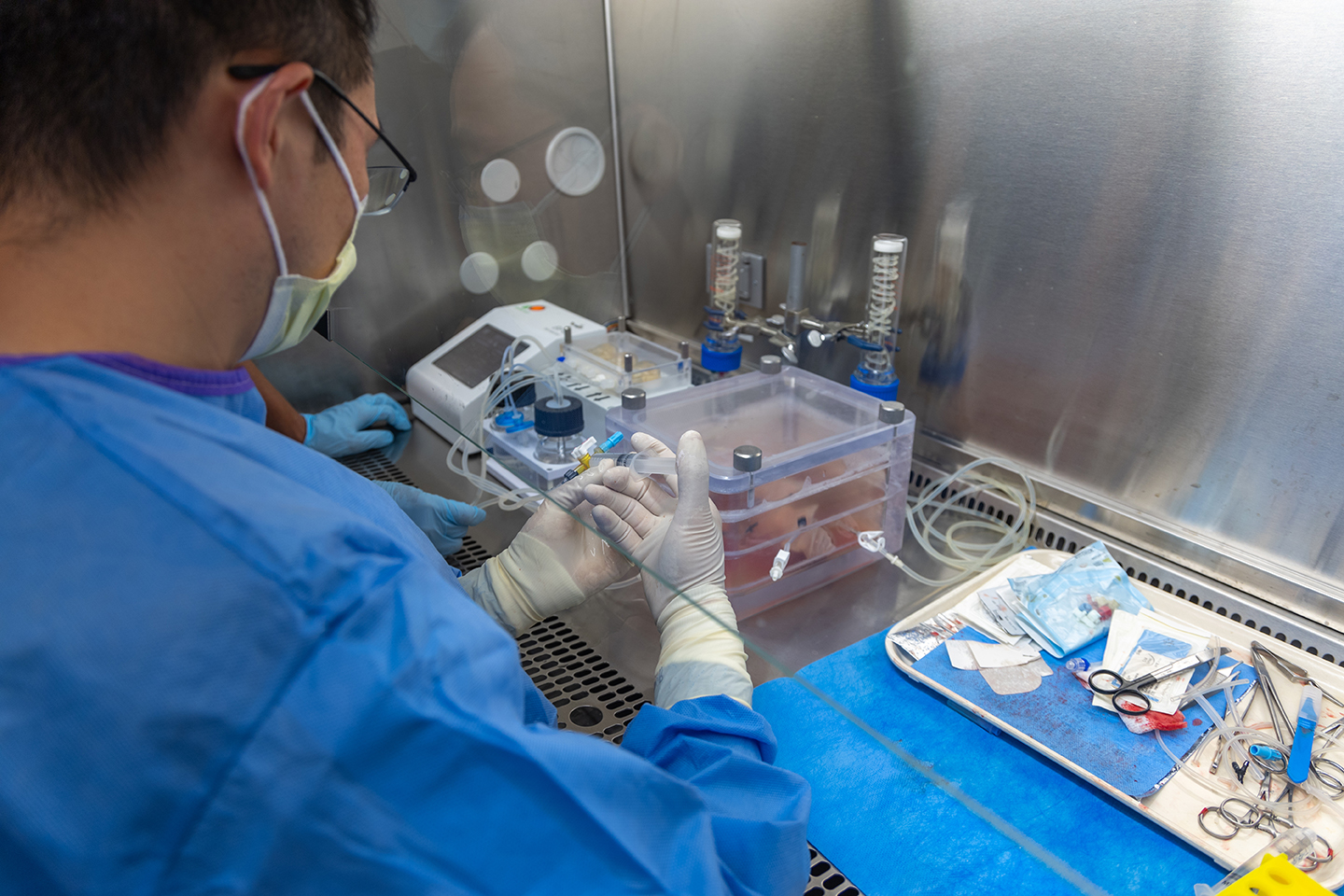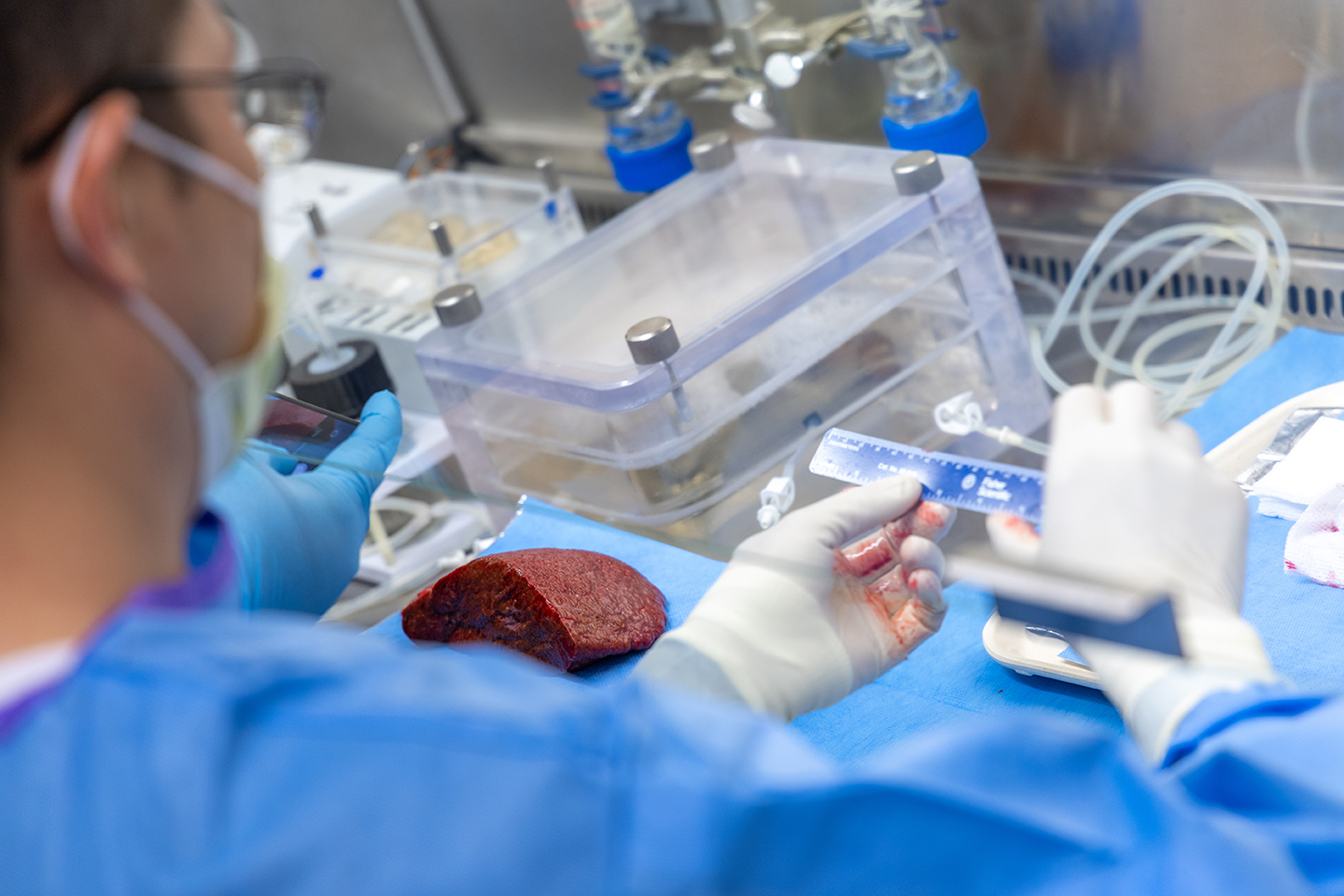
The Center for Transcriptional Medicine (CTM), a new interdisciplinary center in the University of Pittsburgh’s Department of Pathology, aims to revolutionize the treatment of end-stage organ disease by healing organs rather than waiting for donor organs to become available for transplant.
It brings together 41 researchers from seven universities who are taking a novel approach to reprogram chronically injured tissues and organs.
This groundbreaking collaboration is already drawing national attention and was featured in an article in WIRED.
The center is headed by Alejandro Soto-Gutiérrez (Department of Pathology, University of Pittsburgh), Nobel Prize winner Drew Weissman (Department of Medicine, University of Pennsylvania), Sarah Hainer (Department of Biological Sciences, University of Pittsburgh), and Deepak Nagrath (Department of Biomedical Engineering, University of Michigan).
End-stage organ diseases of the lungs, liver, heart and kidneys are responsible for millions of deaths worldwide annually. The only curative treatment currently available is organ transplant, but according to the Centers for Disease Control and Prevention, on any given day, there are more than 100,000 people on active waiting lists for organs.

Rather than focus on organ replacement, CTM researchers are seeking new ways to save diseased organs, building on the same mRNA delivery technology that powers some COVID-19 vaccines. Weissman's pioneering work with Katalin Karikó in developing the mRNA platform used to deliver COVID-19 vaccines led to their winning the 2023 Nobel Prize in Physiology or Medicine.
The vaccines use lipid nanoparticles to deliver mRNA to the cells, a new yet cost-effective approach.
The center’s research aims to leverage an integrated multi-omics approach to identify master regulators of cellular identity in diseased tissues, known as transcription factors, that are disrupted during disease progression.
CTM researchers have previously shown that re-expression of these disrupted transcription factors in diseased livers reprograms cells and improves organ function.
Lipid nanoparticles naturally go to the liver, but CTM researchers are working to expand the treatment strategy to chronic diseases of the kidney, heart and lung, establishing mRNA-based therapeutics as a viable option for the treatment of end-stage organ disease.
For more information on the research mission of CTM, visit the website at https://ctm.pitt.edu/.
Photo Credit: Nate Langer/UPMC
